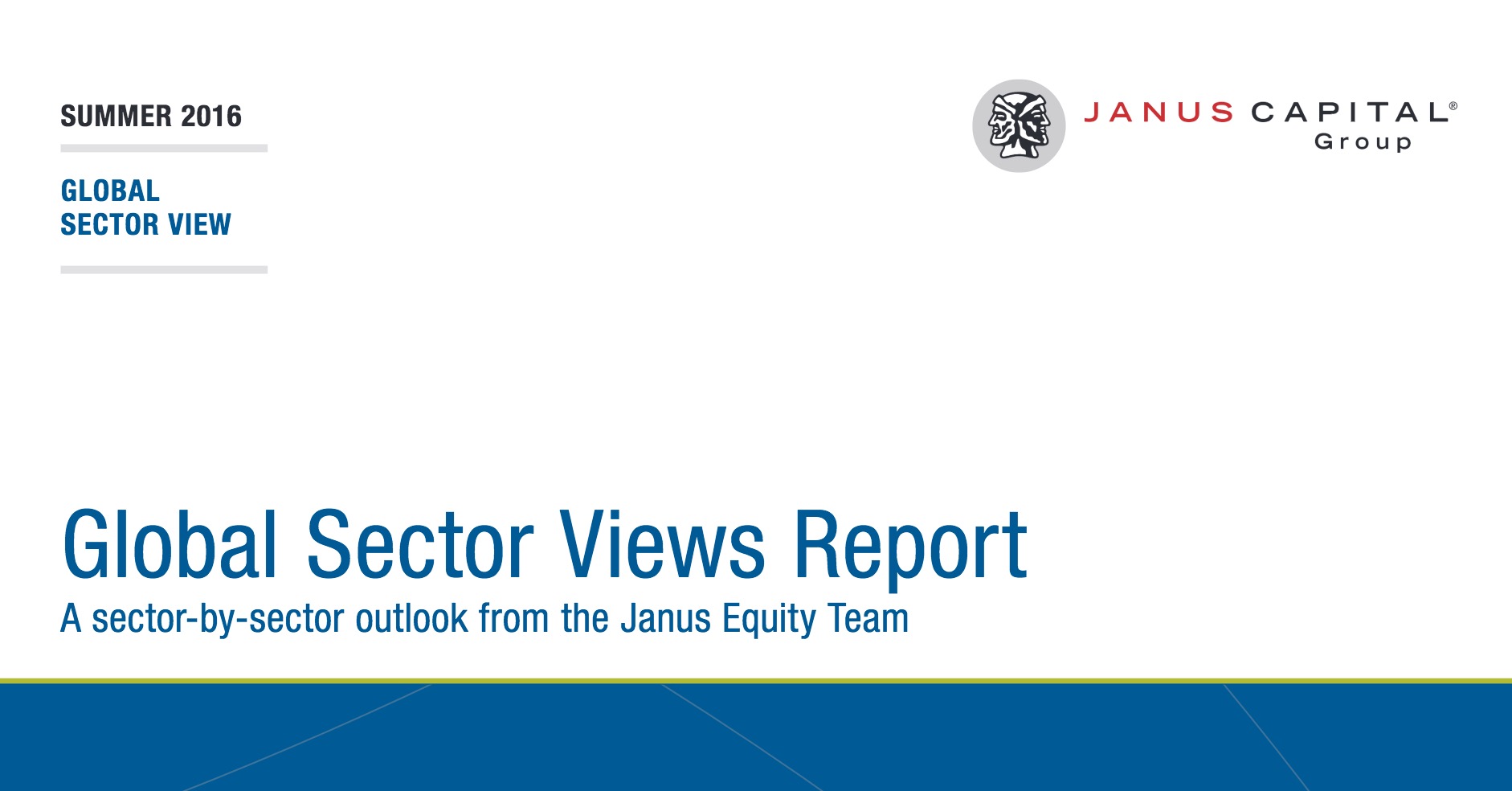Global Sector Views 3Q16: The Summer of Our Discontent
Overview
Once again, summer comes with volatility out of Europe. The 43-year marriage between the UK and its continental neighbors moves to a messy and long divorce negotiation – with a lot of assets at stake.
On the day the Brexit results were announced, global equities shed a remarkable – and a record – $2.1 trillion in value, only to climb back in the final days of June. The fall and subsequent bounce likely presage a volatile summer for stocks and many other asset classes. Beyond the uncertainty in the UK and on the continent, as the currencies and stock markets weaken, Brexit has implications for China and Japan, and for U.S. companies sensitive to a stronger dollar. We see an environment where portfolios that have lower exposure to volatility and a lower beta should hold up on a relative basis. In the last year, more volatile stocks have been exceptionally poor contributors for active investors.
For active investors, the key is to try to hold the line during this period of volatility. We do not think that it is a time to try to run to defensive stocks or to broaden a portfolio so much that it solely mimics an index.
Brexit is another sign that populism is taking hold of the electorate, many of whom suffered in the global financial crisis and feel that they haven’t fully participated in the recovery. Mildly improving economies and healthier sovereign balance sheets are slim comfort to many who are struggling to regain a pre-crisis standard of living.
Against the economic backdrop, along with the migrant crisis and specter of terrorism, which are unfairly linked, we may see additional political turmoil leading market disruption. It is easier to leave the EU than to leave the euro, but the rise of populist parties in Europe suggests we may see calls for both in the coming months. Many key European elections happen over the next year.
Step back from the politics, however, and the picture improves. Consumer confidence and activity is generally holding up. Companies once again have flush balance sheets. While they are cautious on expansion capital expenditures, companies are using cash to buy shares or pay dividends. Several of the key issues from earlier this year seem less vexing. Oil has recovered and China seems to be on a more certain path. Federal Reserve policy remains tough to foresee, however, but should be data dependent. A rate hike, therefore, might be a strong signal of economic strength and therefore positive for equity markets.
For active investors, the key is to try to hold the line during this period of volatility. We do not think that it is a time to try to run to defensive stocks or to broaden a portfolio so much that it solely mimics an index. It is too difficult to predict when markets calm and fundamentals matter more. The last several years have been conducive for passive investing. A defensive market can penalize active investors, especially those with a growth bent or who own smaller than average companies. When markets calms, active investing can recover.
The outlooks for technology and health care have not changed much with the Brexit vote. The shift to the cloud and the challenge to legacy tech companies carry on and provide attractive investment opportunities.
Certain sectors can hold up better, and we highlight our sector views in the following pages. The outlooks for technology and health care have not changed much with the Brexit vote. The shift to the cloud and the challenge to legacy tech companies carry on and provide attractive investment opportunities. The innovation of medicine and the demographic shifts we have often discussed remain. Both sectors are cheaper following the turmoil but no less attractive. Other sectors face a tougher row. Financials, which fell stunningly following Brexit, face the difficult problems of challenging economic conditions, corporate uncertainty about borrowing, negative interest rates and shrinking margins. UK banks also must endure an uncertain regulatory environment. Industrials could struggle with a strong U.S. dollar and weak global markets.
The road of crisis seems a little too well traveled lately. Whether Brexit is like Cyprus – a noisy event with few longterm implications – or like Lehman – which sparked a global panic with ripples still touching us today – remains to be seen. Our leaning is toward the former but it doesn’t mean the summer won’t be tough for equities. Active equity could struggle more in the near term because it is typically less exposed to large cap, to yield and to defensiveness overall than most indices. Longer term, the importance of growth and innovation should matter more in a sluggish global economy. Our focus on these companies is not changing.
If the summer of our discontent is made glorious, therefore, it will be because investors focus on better fundamentals and ignore the political uncertainty. We recognize the fragility of the economic recovery and the stretched policies of central banks, but our base case remains positive on equities. In previous periods of market pique, defensive environments gave way to stronger equity markets that favor active managers with a tolerance for volatility, growth and higher than average multiples. Our vote (and our money) goes there.
For key sector trends, download the full PDF to look at our sector reports. Stock picking requires understanding the sector outlooks.
Read/Download the complete report below:













